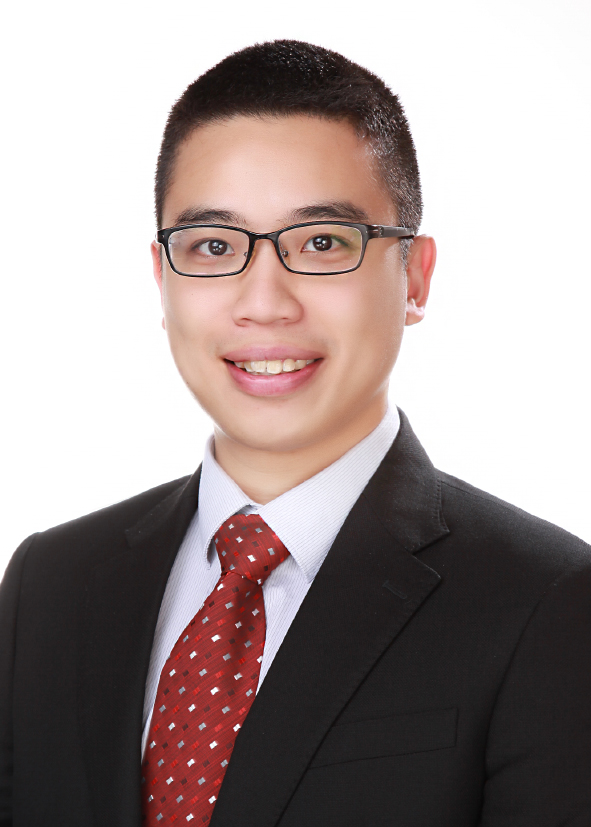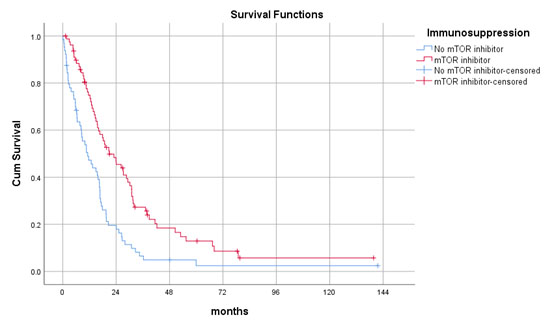
Mammalian target of rapamycin Inhibitors after post-transplant hepatocellular carcinoma recurrence: Is it too late?
Kin Pan Au1, Kenneth Siu Ho Chok1.
1Surgery, The University of Hong Kong, Hong Kong, Hong Kong
Background: Mammalian target of rapamycin (mTOR) inhibitors have been shown to reduce the risk of tumour recurrence after liver transplantation for hepatocellular carcinoma (HCC). However, its role in established post-transplant HCC recurrence is uncertain. We investigate whether mTOR inhibitor offers survival benefit in this context.
Methods: A retrospective study of 143 patients who developed HCC recurrence after liver transplantation was performed. They were divided into 2 groups based on whether they had received mTOR inhibitor-based immunosuppression. The primary endpoint was post-recurrence survival.
Results: Seventy-nine (55%) patients received mTOR inhibitor-based immunosuppressive regime while 64 (45%) of them did not. The mTOR inhibitor group had a lower number of recurrent tumours (2 vs. 5, p=0.02) and received more active treatments including radiotherapy (39 vs. 22%, p=0.03) and targeted therapy (59 vs. 23%, p<0.001). The median post-recurrence survival was 21.0±4.1 months in mTOR inhibitor group and 11.2±2.5 months in the control group. Multivariate cox regression analysis confirmed mTOR inhibitor was independently associated with improved post-recurrence survival (p=0.04, OR 0.482, 95%CI 0.241-0.966).

Number of recurrent tumours and use of other treatment modalities did not affect survivals. There were no survival differences observed between mTOR inhibitor monotherapy and combination therapy with calcineurin inhibitor (CNI).
Conclusions: mTOR inhibitors prolonged survival after post-transplant HCC recurrence.
[1] Rodríguez-PerálvarezM, TsochatzisE, NaveasMC, et al. Reduced exposure to calcineurin inhibitors early after liver transplantation prevents recurrence of hepatocellular carcinoma. J Hepatol. 2013;59(6):1193-1199.
[2] TosoC, MeraniS, BigamDL, ShapiroAMJ, KnetemanNM. Sirolimus-based immunosuppression is associated with increased survival after liver transplantation for hepatocellular carcinoma. Hepatology. 2010;51(4):1237-1243.
[3] AuKP, ChokKSH. Multidisciplinary approach for post-liver transplant recurrence of hepatocellular carcinoma: A proposed management algorithm. World J Gastroenterol. 2018;24(45):5081-5094.
[4] GeisslerEK, SchnitzbauerAA, ZülkeC, et al. Sirolimus Use in Liver Transplant Recipients With Hepatocellular Carcinoma: A Randomized, Multicenter, Open-Label Phase 3 Trial. Transplantation. 2016;100(1):116-125.
There are no comments yet...
